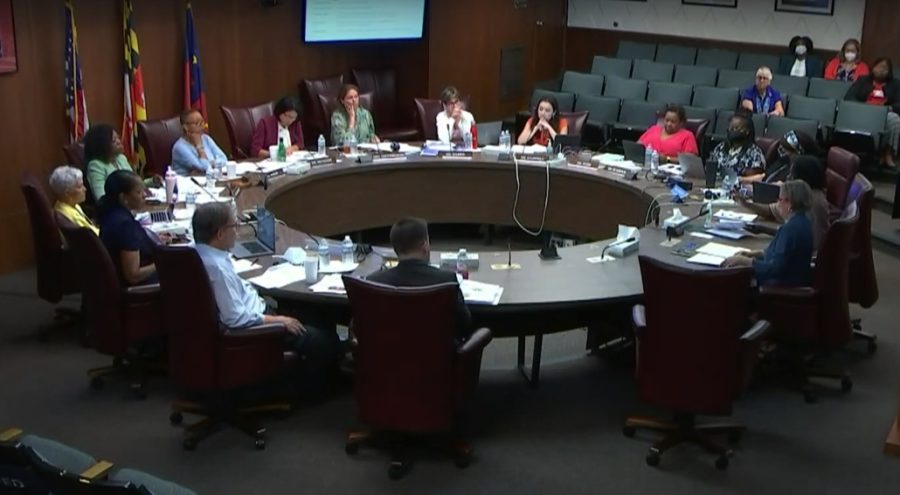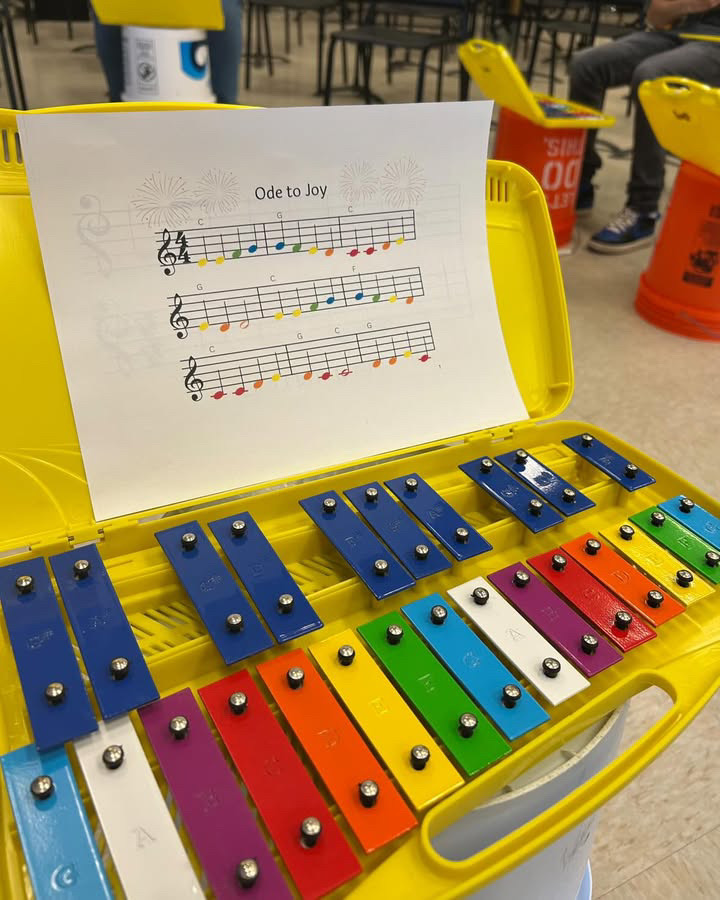Board of Education votes against proposed financial literacy course requirement
The Board voted against a proposal that would have required students to complete a semester-long financial literacy course in order to graduate high school.
June 12, 2022
The Board of Education voted against a proposal that would require MCPS students to complete a semester-long financial literacy course in order to graduate at a meeting on Tuesday. The measure failed in a 5–3 vote, with Board members Hana O’Looney, Lynne Harris and Rebecca Smondrowski voting in favor of it.
In a subsequent vote, the Board unanimously agreed to revisit the proposal in spring 2023, when it plans to use data from school districts like Prince George’s County Public Schools — which recently instituted a financial literacy graduation requirement — to inform a future course of action.
Student Member of the Board Hana O’Looney proposed the financial literacy requirement in early October. Her proposal would have required students to complete a semester-long financial literacy course before graduating high school, beginning with the graduating class of 2027.
At the meeting on Tuesday, O’Looney urged Board members to prioritize teaching students financial literacy and explained that the semester course would ensure students leave MCPS with essential financial knowledge.
“I think true financial education has the potential to break a cycle of poverty,” O’Looney said. “I don’t want any more situations where we have MCPS graduates who are 20 [or] 21 years old, and they trusted MCPS — probably their only educational background to serve as a foundation for the rest of their life — and they’re not able to manage their finances and find themselves continually locked in what can be a cycle of poverty.”
Board member Scott Joftus voted against the resolution, expressing concerns over a lack of available data on the impact of the proposed requirement. A financial literacy requirement could affect graduation rates among students with limited English proficiency and among those at risk of not completing current requirements, while also creating additional challenges for the district amidst a shortage of educators to teach existing courses, he said.
“Let’s make financial literacy available to as many students who want to take it as an elective,” Joftus said in an interview. “But not yet require it until we have a better understanding of how other districts are implementing the requirements.”
At the meeting, Board member Lynne Harris argued that the school district should continue to explore other approaches to teaching financial literacy.
“I was intrigued by Fredrick [County], which gives an a la carte menu of options,” Harris said at the meeting. “It gives them a menu of classes or options — any one of which would satisfy that requirement.”
MCPS currently incorporates financial literacy instruction into the school district’s required high school Government courses and into social studies curricula in third, fifth and seventh grade classes. All seventh grade students attend a trip to MCPS’ Finance Park, where they participate in simulations of realistic financial scenarios. Students at six high schools — including Whitman — may also enroll in a semester-long Personal Finance course.
“There would be somewhat of an opportunity cost [to requiring financial literacy] because someone may have to lose out on a full-year course that may be more worthwhile for them,” said sophomore Ramya Rigaud, who enrolled in the Personal Finance elective.
MCPS’ Office of Curriculum and Instructional Programs (OCIP) recommended against adopting the financial literacy requirement proposal, and instead suggested that the school district deliver financial literacy instruction by expanding the Personal Finance elective to additional MCPS high schools, offering non-credit-bearing online modules and integrating the subject into math courses.
In its recommendation to the Board, OCIP also noted that a new graduation requirement would create an additional burden for students who are already struggling to fulfill existing graduation credits, citing data from an MCPS memorandum that analyzed the feasibility of the proposed requirement.
“Certain students may be not on track to graduate who are taking full schedules of required courses,” said Quince Orchard High School senior Noah Pinson, the Chief Operating Officer of the financial literacy organization InnovateX. “This is another requirement that they might not have room for.”
InnovateX student leaders participated in discussions with the MCPS Personal Finance Work Group, which examined the school district’s current financial literacy instruction and developed recommendations for teaching and expanding the accessibility of the subject. The Work Group was composed of MCPS Central Office staff, students, community members and non-profit organizations.
While the Board expressed overwhelming support for financial literacy instruction, members offered differing approaches to teaching it in schools.
“I think everybody on the Board agrees that having students graduating from high school with a really sound understanding of finance, taxes, credit cards and mortgages is a really important thing,” Joftus said. “I think the question is: ‘how do we get there?’”
Dr. Scott Joftus is the father of Opinion editor Eliana Joftus.









